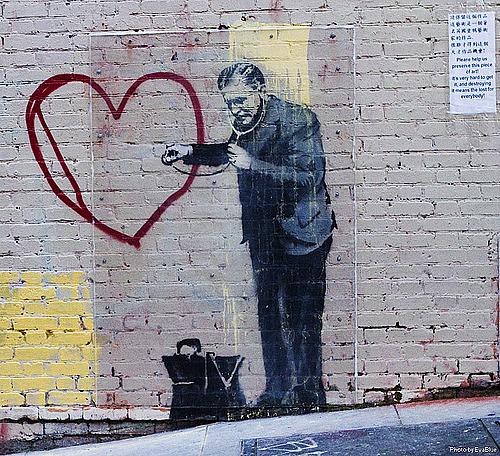Do you need to love your doctor? Cancer made me realize that I do

Image by Eva Blue via Flickr
I’ve seen the same dentist, the same gynecologist and the same internist for years, even decades. They are competent, and nice enough. But I recently dropped my oncologist because, in part, I didn’t love him. And I need to. After all, my oncologist has my vulnerable life in his hands.
Before getting a cancer diagnosis in March 2013, I had no reason to believe I needed to like my doctors, let alone love them. As long as they were competent and honest, showed integrity and treated me with respect, I was content. But cancer made me realize I wanted more from my oncologist than I got, a lot more.
I went to see him again not long ago after several rounds of treatment — four rounds of chemotherapy and some targeted radiation therapy. Then one summer day in his office, he told me what I dearly wanted to hear — that my stage 4 lung cancer, which had spread to my brain and rib was, for all intents and purposes, in remission.
He was wrong.
A subsequent trip to Houston to the MD Anderson Cancer Center, which has been directing my treatment, revealed that the pain in my rib I’d been complaining about for months was from another tumor that had developed. I would need more chemo.
See Also: Lung cancer carries unfair stigma that other cancers don’t
When I asked my local oncologist how this tumor was missed, especially since I had been complaining about pain, he told me that the other doctors in his practice — the radiation oncologist, the surgeon and others — had all agreed with him about my status. And he told me he doesn’t like to use the term “remission.”
“Really? Because you did,” I said, reminding him of his exact words.
I knew then that I had to find another oncologist. The trust was gone. Was he lazy, I wondered, or incompetent? Was he arrogant and just figured he knew best and that I was a big complainer? I can’t remain under his care if he’s lazy, incompetent or arrogant. If there’s another explanation, I can’t think of it. I also realized that I should have acted sooner.
When it comes to the many specialists that I might have to see, the oncologist stands alone. The oncologist is the person who will look after my cancer for the rest of my life, however long it lasts. He or she deals with me, and often will be my proxy in dealing with other medical professionals who look after my health.
I will be seeing a lot of my oncologist. I need to trust him or her implicitly. Just for starters, I need to trust the treatments prescribed for me will work, even if they make me feel sicker than I felt in the first place.
Recently, I had a procedure called cryoablation to alleviate the pain in my rib. The post-operative pain was unbearable – the worst pain I’ve ever had — but I trust my doctor at MD Anderson so much that I didn’t question whether it was the right thing to do. And, as it turned out, he was right. The procedure has given me significant relief.
Though this local oncologist came highly recommended by a trusted friend, who is also a neighbor and well-regarded doctor at the same hospital, my initial impression of him was not good. At our first meeting, he informed me, with a broad smile on his face, that an MRI revealed several tumors in my brain. His smile struck me as odd, even creepy. I asked him why he was smiling as he delivered very bad news. He said he chose to focus on the “silver lining,” which in this case was that my brain tumors were treatable.
An acceptable response, I thought at the time. But looking back now, I should have trusted my gut and found a different doctor with whom I felt comfortable.
A friend, an artist who passed away about a year ago from colon cancer, used to tell me she loved her oncologist. Her gratitude was so deep that she wanted him to have one of her favorite paintings, that it would mean a lot to her that he have it to hang somewhere once she was gone. But his awkwardness accepting the gift made her wonder if he was reluctant to acknowledge her feelings or return them — that she was just a patient, after all.
I don’t know the truth of my friend’s situation, but I’ve come to understand that, anecdotally at least, cancer patients can develop powerful feelings for their doctors.
Another friend, a late-stage cancer patient, told me she loves her oncologist so much that she feels incredibly disloyal seeking a second opinion from another doctor. “All I want is to get a fresh pair of eyes at this point,” she said. “But I feel guilty…He has been with me from the beginning.”
I asked my primary oncologist in Houston to recommend another oncologist in Chicago, where I live, and he referred me to a woman who is roughly my age. I liked everything about her immediately — her sensibility, her humor and her approach.
For reasons I can’t fully explain, I have the same feelings my friends talked about: I am hoping she is a doctor I can fall in love with.
This post originally ran in the "Cancer in Context" blog and has been run with pemission from Thompson Reuters.
Related Stories
Obamacare and Cancer – top doctor sees no maligancy

